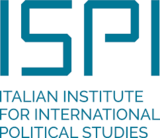
Covid-19 Crisis: G20 and debt sustainability in Sub-Saharan Africa
Berensmann / Aloysius Ordu / Lemma W. SenbetExternal Publications (2021)
in: Antonio Villafranca / Carlo Mongini (eds.), Debt in a Post-Covid World: Is It Sustainable?, Milan: ISPI (Istituto per gli Studi di Politica Internazionale)
COVID-19 has further exacerbated the debt situation in sub-Saharan Africa (SSA). Prior to the pandemic about half of low-income countries (LICs) were at high risk of debt distress or in debt distress, including a large number of LICs in SSA.
To cope with the severe economic consequences of COVID-19, the international community, particularly the G20 countries have a key role to play in providing short-term liquidity and debt relief to SSA. The International Financial Institutions (IFIs) have already provided financial assistance to SSA by extending and reforming existing facilities. Further scaling up of funding by the IFIs is needed by eligible SSA borrowers with demonstrated capacity to use funds transparently, well, and on account of debt sustainability considerations. For these reasons, the G20 has a key role to play.
Already there is a chorus for a global Special Drawing Rights (SDR) reallocation initiative led by the G20. This will require strong political ownership and commitment by G20 countries who collectively own the largest share of SDRs. By donating or agreeing to lend part of their shares, the G20 could considerably support LICs in SSA and elsewhere to meet their infrastructure and human capital needs.
The G20, the Paris Club, and the IFIs have established two processes for providing timely liquidity to developing countries: the “Debt Service Suspension Initiative” (DSSI) and the “Common Framework for Debt Treatments beyond the DSSI”. G20 countries assume a crucial role in providing bilateral grants and loans to LICs because at the end of 2019 they held 91 percent of the bilateral debt of countries that are eligible for the DSSI.
In addition to this liquidity provision, the G20 should support countries in SSA through non-financial measures, including capacity building and responsible lending. The international community and the G20 have a shared responsibility to contribute to debt sustainability in LICs, including in SSA.

